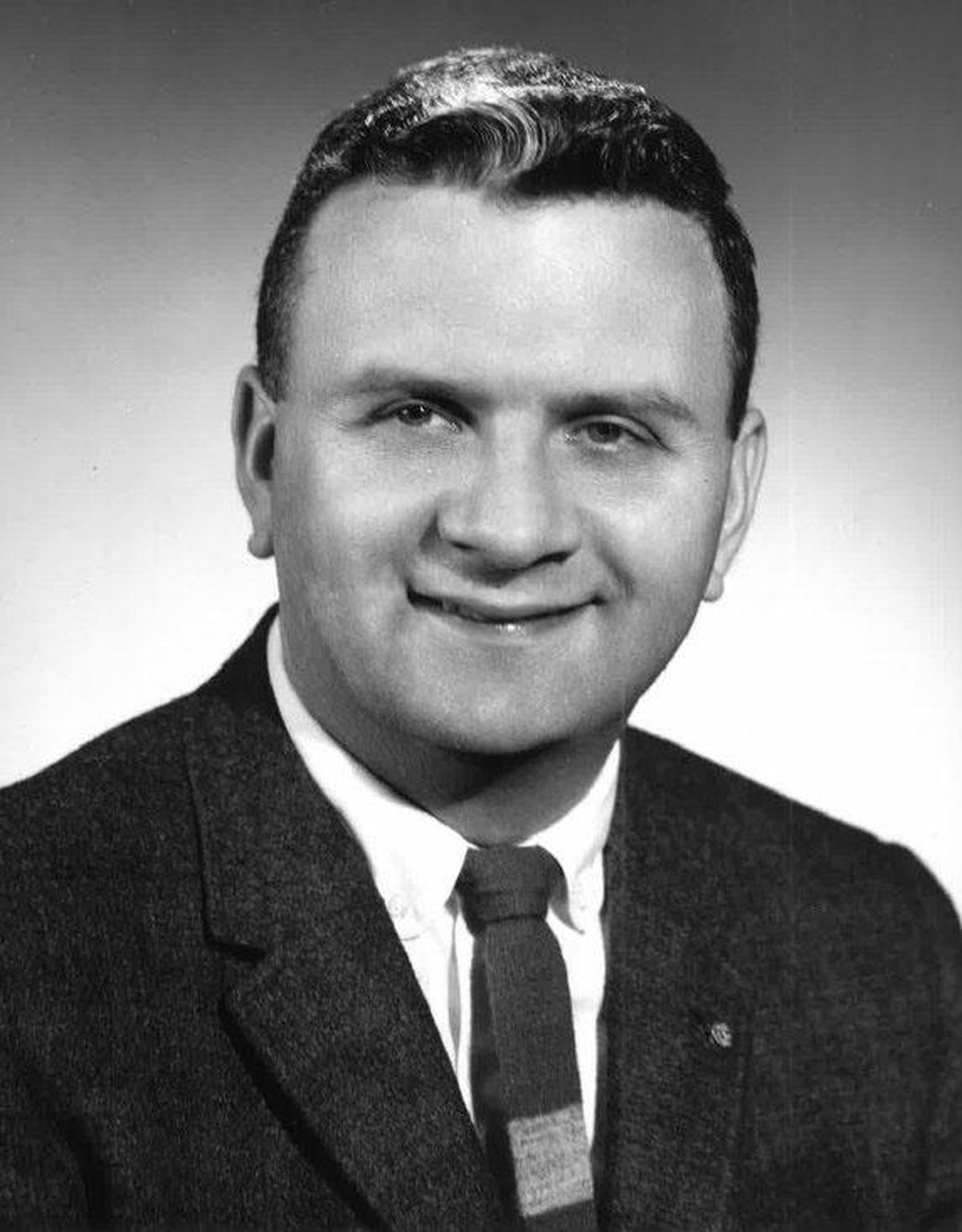Stan Witter Jr., Washington Water Power official and early television pioneer in Spokane, dies at 91

Family members remember Stanley G. Witter Jr. as a family man, philanthropist and a modest hard worker.
Witter, who went by Stan, died at home after a short illness on May 23. He was 90 years old.
Witter was a pioneer in early television news working at both KHQ and KREM in the late 1950s and early 1960s. Among the people he interviewed were CBS television journalist Edward R. Murrow, jazz musician Louis Armstrong, U.S. Rep. Tom Foley and boxer Joe Louis.
When Witter started out in television, all of the commercials were filmed on set, said his son, Greg Witter, recalling a story from his dad about filming a Canada Dry commercial.
Just before the camera panned over to him in his Canada Dry apron, he took a preemptive sip out of the bottle he was supposed to drink from on air.
His buddies at the station had doctored it with Tabasco and other condiments. Witter did a spit take. Luckily, they weren’t live yet, Greg Witter said.
Witter was the son of Stanley G. Witter Sr., a former Spokane parks and recreation superintendent. The Witter Aquatic Center bears his name.
After his career in television, Stan Witter Jr. spent 23 years in public relations for the Washington Water Power Co., which is now Avista.
“Everyone spoke in glowing terms about my dad’s professionalism,” said Steve Witter, the oldest of his children.
Steve Witter was a reporter at The Spokesman-Review in the late 1970s and early ’80s, where his time overlapped with his father’s at Avista. Steve remembers his father as a model for the PR industry who was “held in great respect in a room of cynical journalists.”
“He was a very modest guy who would tend to downplay his own work,” said Steve Witter. “He was more of a workhorse than a show horse.”
Steve Witter, like his father, moved in to public relations and is now the executive director of communications and development for Educational Service District 101.
He married June Gagliardi in October 1953, and the couple was married for 42 years until she died in 1995. Their children considered them “the consummate team players.”
The couple’s daughter, Kathy Witter Brindley, followed in her mother’s footsteps and became a nurse.
“He was the most supportive dad in the world, always a cheerleader for his children,” said Witter Brindley.
She often saw him standing in the back of her piano recitals, said Witter Brindley. No matter how she played, he always made her feel good.
Greg Witter, like his siblings, followed his parent’s career cues first as a journalist then as public relations executive for Alaska Airlines, and now of the Witter Group in Seattle.
Witter spent his entire life in Spokane. He was widely considered “part of the fabric of the community,” Greg Witter said.
He graduated from Lewis and Clark High School in 1946 and went on to be the starting catcher on Gonzaga University’s baseball team. He graduated from Eastern Washington State College in 1951 with degrees in broadcasting and education. He later taught as an adjunct instructor, in radio and broadcast at Eastern.
Witter was in the military for 31 years and retired as an Air National Guard Lieutenant Colonel in 1989, after receiving numerous awards. He volunteered for numerous clubs, groups and events, including the Central Lions Club, the Expo ’74 organizing committee, the Spokane Coliseum and Stadium Advisory Board, and the Spokane Lilac Festival Association.
In his later years, Witter pursued his love of landscape photography and especially liked taking pictures of eagles. For the past two years, he lived at Touchmark, an assisted living facility on the South Hill. Witter’s community involvement continued with many “old time Spokane family” residents in his new home, Witter Brindley said.
“He was interested in everybody no matter who they were,” Greg Witter said. “He could literally have a conversation with a U.S. senator one minute and then turn around and have the same kind of engaging conversation with a homeless person, the next.”